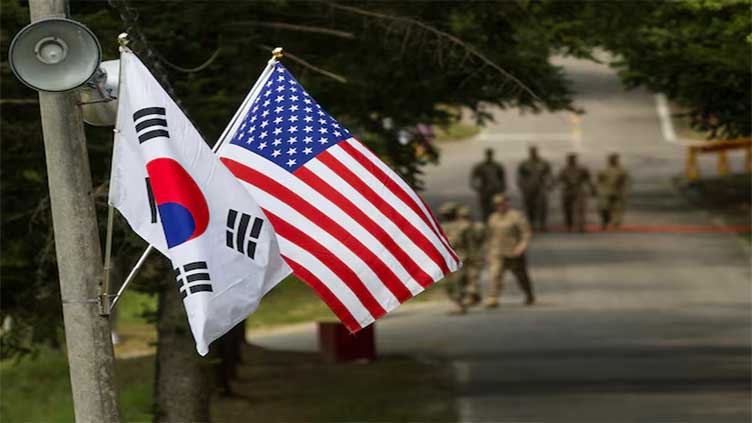South Korea, US to hold new round of nuclear planning talks in Seoul

World
The third meeting of the Nuclear Consultative Group is designed to follow up on last year's summit
SEOUL (Reuters) – South Korea and the United States were set to hold talks on Monday in Seoul on better coordinating an allied nuclear response during a war with North Korea, amid anxiety over Pyongyang's growing arsenal, Seoul officials said.
The third meeting of the Nuclear Consultative Group (NCG) is designed to follow up on last year's summit, during which the United States promised to give South Korea more insight into its nuclear planning for a conflict with the North.
The talks came as North Korea races ahead to advance its nuclear weapons and their delivery systems, which triggered questions in South Korea about its reliance on "extended deterrence" – in essence the American nuclear umbrella.
Some politicians, including some senior members of President Yoon Suk Yeol's party, called for Seoul to develop its own nuclear weapons, a step Washington opposes.
In late May, North Korea's attempt to launch a military reconnaissance satellite failed after a newly developed rocket engine exploded in flight. Seoul and Washington condemned the launch as a violation of UN Security Council sanctions banning Pyongyang's use of ballistic technology.
The latest talks will be led by Cho Chang-rae, South Korea's deputy defence minister for policy, and Vipin Narang, acting US assistant secretary of defence for space policy.
After their second meeting in December, both sides warned that any nuclear attack by North Korea against the United States or its allies will be met with a "swift, overwhelming and decisive response" and result in the end of Kim Jong Un's regime.
Last week, South Korea's Defence Minister Shin Won-sik and US Defense Secretary Lloyd Austin met on the sidelines of the annual Shangri-La Dialogue security conference in Singapore, during which they reaffirmed the goal of North Korea's complete denuclearisation and continued efforts to boost US extended deterrence.


